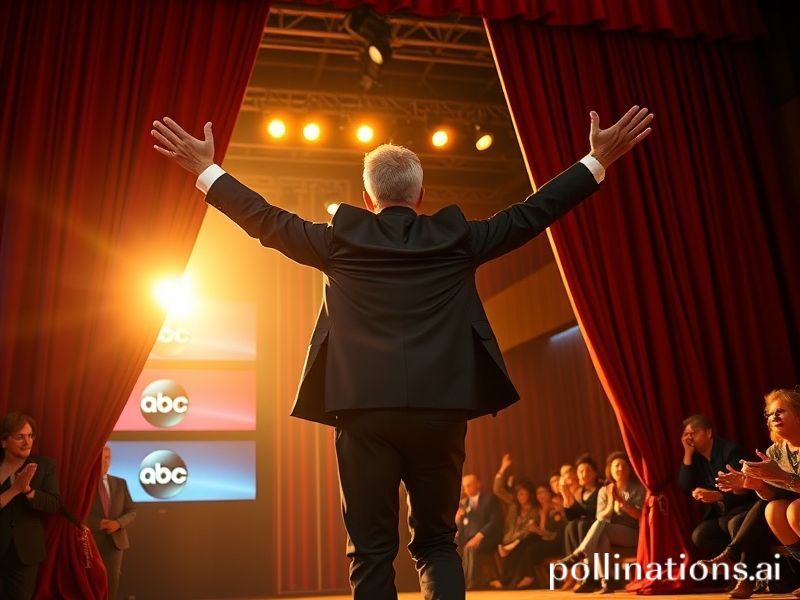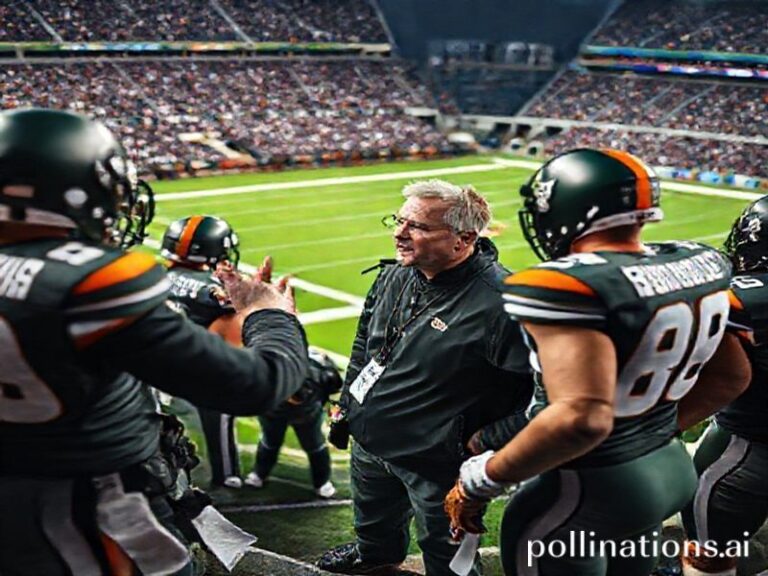Jimmy Kimmel’s Comeback: How One Late-Night Host Rebooted America’s Favorite Global Distraction
Jimmy Kimmel’s triumphant stroll back onto the Disney lot this week felt less like a mere late-night resurrection and more like the ceremonial lighting of a distress flare in the middle of the Pacific: technically reassuring to passing ships, yet also a blunt reminder that the ocean is vast, the sharks are circling, and someone is still trying to sell you a Mickey Mouse-branded life-vest. After a five-month writers’ strike turned Hollywood Boulevard into an open-air casting call for picketing scribes and TikTok influencers, Kimmel’s return to ABC’s Jimmy Kimmel Live! signaled not just the end of a labor dispute but the re-inflation of America’s most exportable soft-power balloon—late-night satire—at a moment when the rest of the planet is busy stockpiling hard power.
From Seoul to São Paulo, the strike’s ripple effects were oddly intimate. Seoul’s Café Bene franchises—famed for 24-hour drip coffee and K-drama binge sessions—reported a 9% drop in overnight foot traffic as subtitled American monologues vanished from streaming queues. In São Paulo, bootleg DVD hawkers who normally shift pirated Marvel blockbusters pivoted to black-market boxed sets of 2019 monologues, proof that nostalgia is the last recession-proof commodity. Meanwhile, EU regulators quietly toasted the hiatus: one less source of American cultural hegemony clogging up the algorithms, freeing bandwidth for Eurovision memes and whatever France thinks counts as comedy.
Kimmel’s first monologue back—equal parts strike victory lap and geopolitical throat-clearing—opened with the quip that “the only thing longer than our hiatus is the queue at Heathrow,” a line that landed in Burbank but detonated on British Twitter like a lukewarm crumpet. Britons, grappling with their own revolving-door prime ministers, recognized the gag as classic American projection: when your own house is ablaze, compliment the neighbor on their charming chimney fire. Canadians, ever polite, simply asked if the joke could be shipped north with extra healthcare. Australians, nursing their own writers’ grievances, offered to swap crocodiles for punchlines at a one-to-one exchange rate.
The global significance, however, stretches beyond punchlines. Late-night shows are America’s last reliable trade surplus: a nightly infomercial for the English language, dental veneers, and the illusion that somewhere, someone in power is being held accountable by a man in a tailored suit holding a coffee mug. When the strike shuttered that assembly line, the world noticed the silence like a sudden halt in the Muzak at a casino: disorienting, vaguely apocalyptic, and prompting everyone to check their own bets. Russian state media ran earnest segments on “American cultural collapse,” forgetting that their own propaganda cupboard is stocked mostly with dashcam bears and Wagner recruitment ads. China’s censors allowed carefully curated clips of Kimmel’s return to circulate—minus the jokes about Xi Jinping resembling Winnie the Pooh—treating the monologue like rare panda footage: cute, harmless, and politically neutered.
Of course, the real winners are the multinational advertisers who bankroll the spectacle. Unilever, Toyota, and Samsung—corporate empires that span more borders than cholera—poured champagne over spreadsheets showing that global eyeballs had merely migrated, not vanished. Their relief is palpable: nothing threatens quarterly earnings like an outbreak of global sobriety. The strike proved that even in the age of TikTok, Instagram Reels, and AI-generated comedy bots, there remains a stubborn market for the ancient ritual of a human standing under studio lights, pretending the world is simple enough to fit between two commercial breaks.
Kimmel’s return, then, is less cultural resurrection than scheduled maintenance on the planet’s most lucrative coping mechanism. The monologues will flow, the celebrities will plug their superhero sequels, and the rest of us—whether watching in Lagos laundromats or Reykjavik basements—will pretend that laughing at American dysfunction absolves us of our own. The strike bought five months of global silence; its end merely restarts the comforting hum. Somewhere, a glacier calves into the sea, but hey, at least the jokes are back on schedule.







